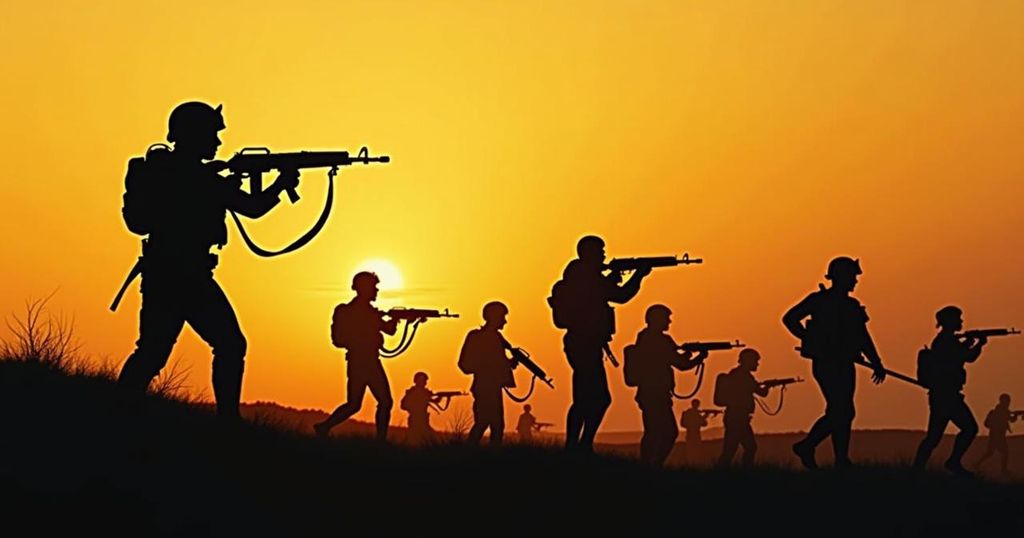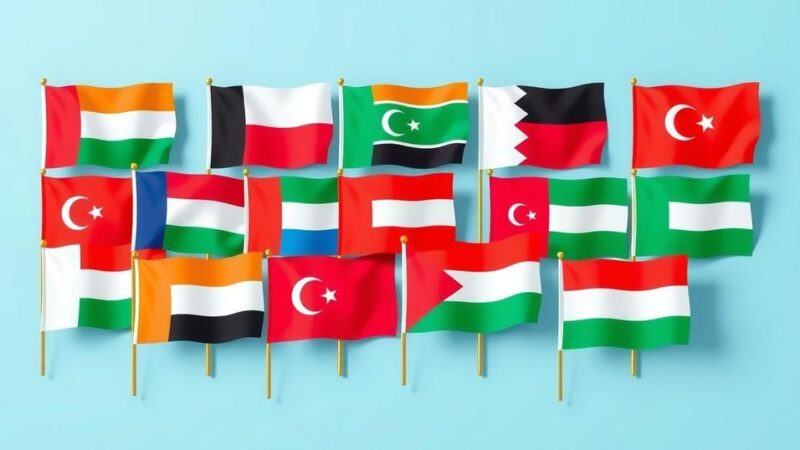Hezbollah and Israeli forces are in conflict, prompting evacuations of injured soldiers as Israel escalates attacks in Gaza, including airstrikes that have resulted in civilian casualties. International responses feature calls for military action against Iran and condemnations from leaders in Australia and Japan, while humanitarian conditions for displaced families in Lebanon worsen significantly.
Hezbollah has engaged Israeli forces in Lebanon amidst ramped-up Israeli military actions in Gaza. Israeli forces evacuated injured soldiers via helicopters following a Hezbollah assault in southern Lebanon. Concurrently, Israel conducted airstrikes in Gaza, targeting the residence of journalist Ahmed al-Zard southeast of Khan Younis, resulting in multiple fatalities, including family members of the journalist, who himself sustained serious injuries. Reports indicate that rescue teams faced impediments from Israeli fire while attempting to assist those trapped under debris. In Washington, several Republican officials have urged military action against Iran in response to missile strikes directed at Israel from Iran. Airline FlyDubai has suspended operations to various regional destinations, citing increased tensions. Gunfire in Jordan has resulted in minor injuries and prompted assessments of damage by local authorities, reaffirming Jordan’s commitment to maintaining its sovereignty amid the evolving conflict. Meanwhile, Australian Prime Minister Anthony Albanese condemned Iran’s missile barrage as a perilous escalation, urging for an immediate de-escalation of hostilities. Support for Israel remains a crucial aspect for U.S. Vice Presidential candidates during their political contests, despite warnings regarding the implications of unwavering support. Japan’s Prime Minister Shigeru Ishiba echoed sentiments against Iran’s attacks, advocating for cooperative international efforts to mitigate the situation. An analyst from the Center for International Policy suggested that Iran’s recent military responses stem from a perception of increasing Israeli aggression. Reports from the International Rescue Committee indicated dire humanitarian conditions among displaced Lebanese families, emphasizing urgent needs for basic resources like food, water, and health care. In summary, the region faces severe humanitarian crises as military escalations continue to impact civilian populations. The international community’s response varies from calls for support to condemnation of acts of aggression, highlighting the complexities involved in the ongoing conflict.
The ongoing conflict between Israel and Hezbollah in Lebanon has intensified against a backdrop of escalating tensions in Gaza. In particular, Israel has increased its military operations in response to perceived threats, resulting in significant civilian casualties and destruction. International reactions to these conflicts reflect a mix of concern for humanitarian outcomes and strategic political stances. The involvement of regional and global powers like Iran, Jordan, Australia, and Japan underscores the conflict’s complexity, making it a focal point for geopolitical discussions.
The conflict between Israel and Hezbollah, alongside military actions in Gaza, has escalated humanitarian crises in the region. The international community’s reactions—ranging from condemnation to military support—reflect varied political motivations and concerns for human welfare. The situation demands attention as more civilians, including vulnerable populations, face dire circumstances amidst ongoing violence.
Original Source: www.aljazeera.com







